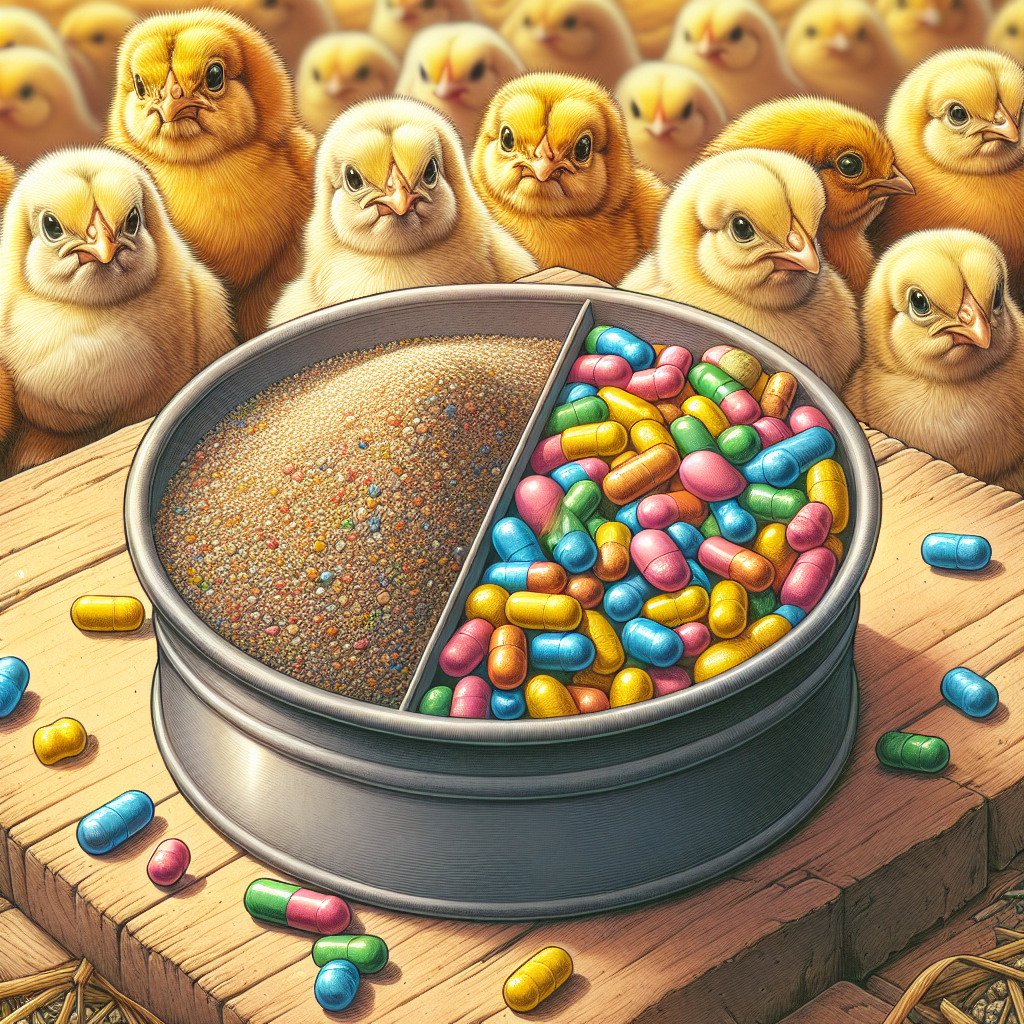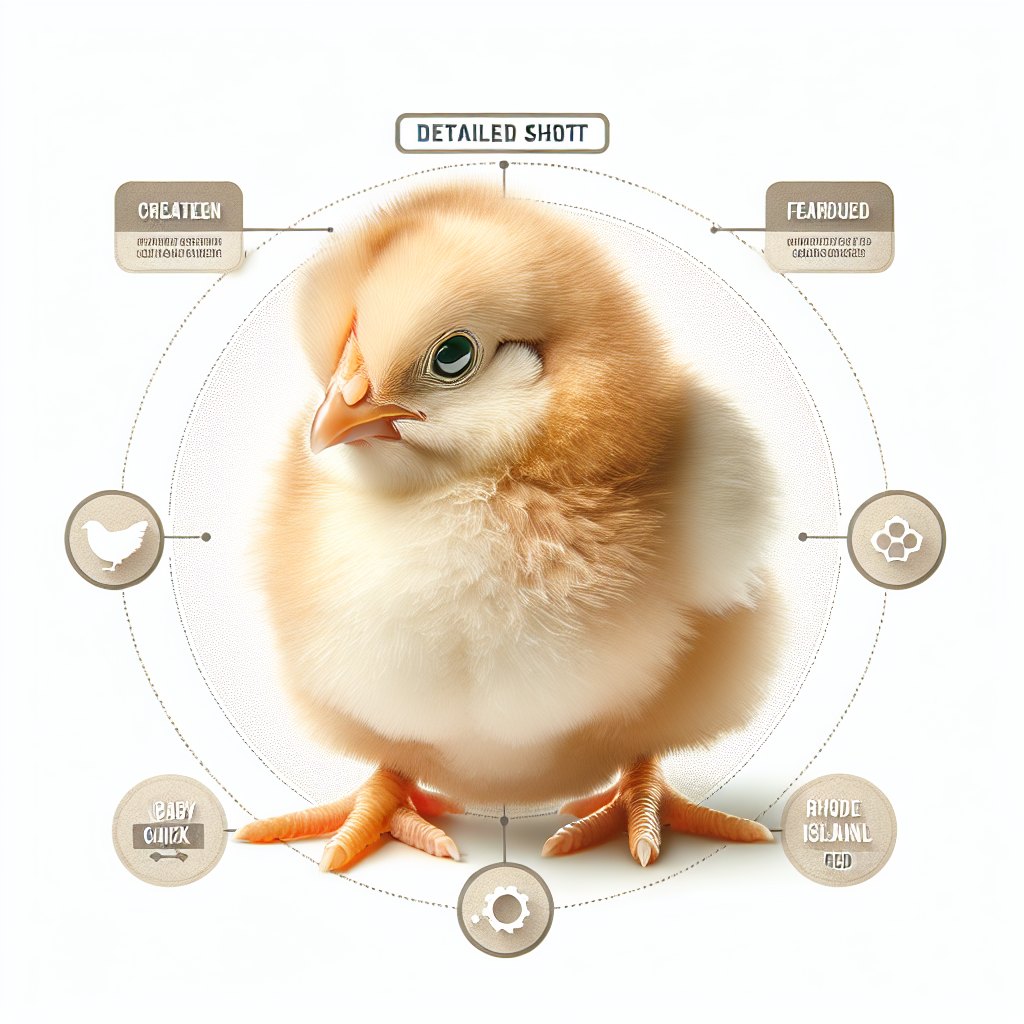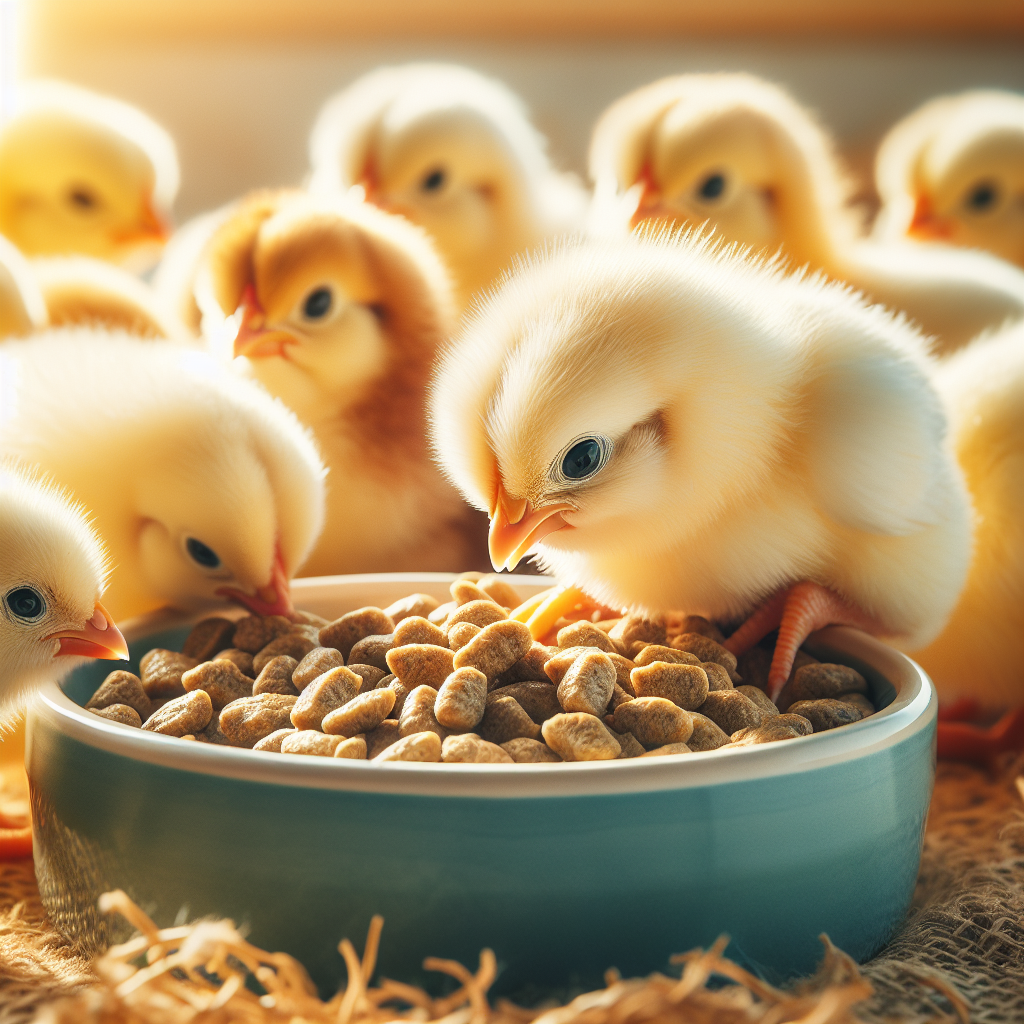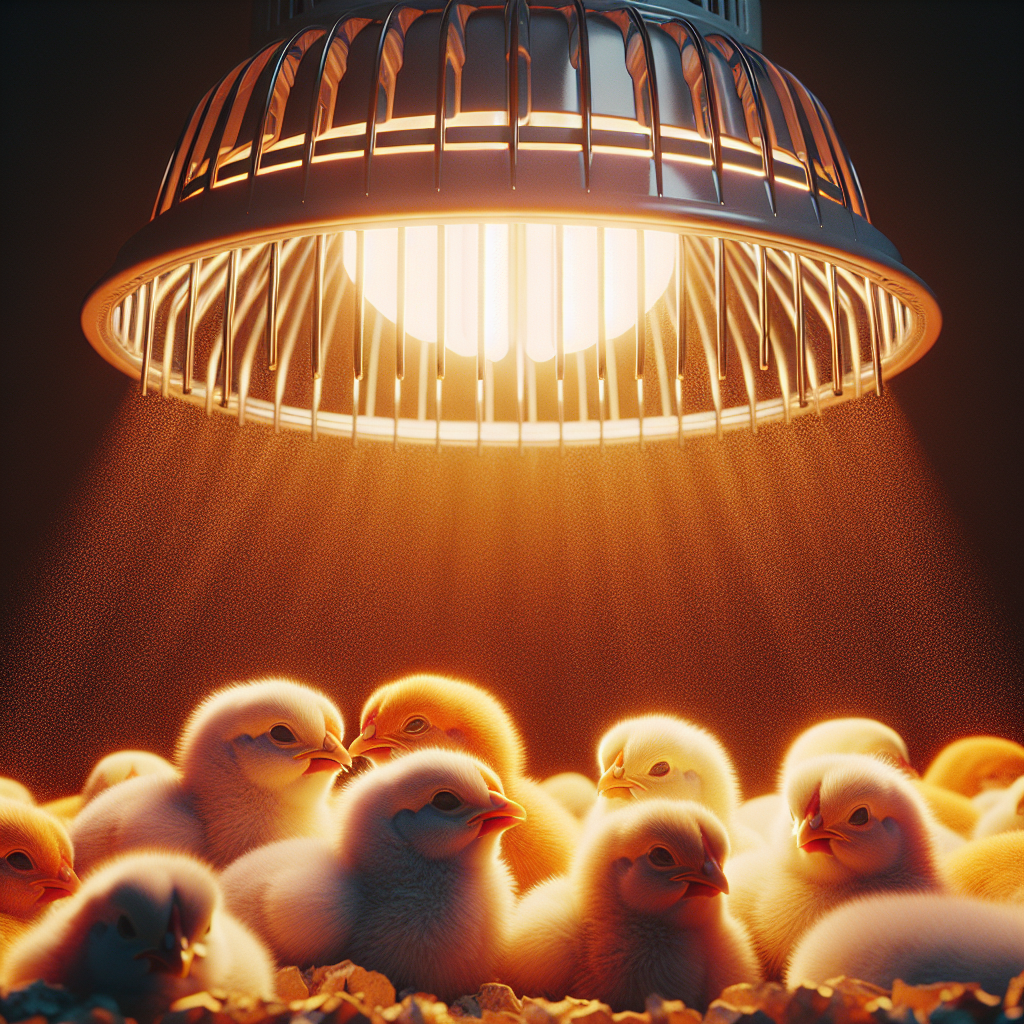In the early stages of a chick’s life, the role of grit and supplements cannot be underestimated. Grit, which can be made up of small stones or shell fragments, plays a crucial part in aiding digestion. As the chicks consume their food, the grit in their gullets helps to break down and grind up the food, allowing for efficient absorption of nutrients. Additionally, supplements provide essential vitamins and minerals that might be lacking in their regular diet, ensuring their healthy growth and development. Understanding the significance of both grit and supplements is key to giving these tiny creatures the best start in life.
The Importance of Grit in a Chick’s Early Diet
Definition of Grit
Grit refers to small, hard particles such as crushed granite or shells that are included in a chick’s diet. These particles act as an aid in the digestion process by grinding up food in the chick’s gizzard, a muscular organ found in their digestive tract. Grit serves as a natural tooth substitute, helping chicks break down and absorb essential nutrients from their food.
Why Grit is Important for Chicks
Grit plays a vital role in the overall health and development of chicks. It enables them to effectively grind their food, ensuring that the nutrients are properly digested and absorbed. Without grit, chicks may struggle with digestion, leading to poor growth, nutrient deficiencies, and various health issues.
By incorporating grit into their diet, chicks are able to break down larger food particles into smaller, more manageable sizes. This allows for better nutrient absorption and overall improved digestion. Additionally, grit helps chicks develop strong gizzards, which are crucial for their long-term digestive health.
Types of Grit for Chicks
There are two main types of grit that can be provided to chicks: insoluble grit and soluble grit.
-
Insoluble Grit: This type of grit consists of small, hard particles such as crushed stones or granite. Insoluble grit remains in the chick’s gizzard for an extended period of time, aiding in the grinding process and helping break down food particles.
-
Soluble Grit: Soluble grit, on the other hand, dissolves in the digestive tract and is composed of substances such as oyster shells or limestone. This type of grit provides calcium to chicks, promoting the healthy development of bones and ensuring they receive the essential nutrients needed for proper growth.
The Role of Supplements in a Chick’s Early Diet
Definition of Supplements
Supplements are additional substances or nutrients that are added to a chick’s diet to enhance their overall health and development. They are used to complement the existing nutrients found in their primary feed and ensure chicks receive a balanced diet for optimal growth.
Benefits of Supplements for Chicks
Supplements offer several benefits for chicks, especially during their early stages of development. They can:
-
Address Nutritional Deficiencies: Supplements help fulfill any nutrient gaps that may exist in the primary feed, ensuring that chicks receive all the essential vitamins, minerals, and trace elements necessary for healthy growth.
-
Support Immune System Function: Certain supplements, such as probiotics or immune boosters, can strengthen a chick’s immune system, helping them fight off diseases, infections, and illnesses more effectively.
-
Enhance Bone Development: Supplements enriched with minerals like calcium and phosphorus contribute to the proper development of skeletal structure in growing chicks, leading to stronger bones and overall improved health.
Types of Supplements for Chicks
There is a wide variety of supplements available for chicks, each serving a specific purpose. Some common types of supplements include:
-
Probiotics: Probiotics are beneficial bacteria that promote a healthy gut by balancing the microbial population within the digestive system. They help improve digestion and nutrient absorption, leading to better overall chick health.
-
Electrolytes: Electrolyte supplements are essential for maintaining the chick’s electrolyte balance, especially during periods of stress or dehydration. They help replenish vital minerals and salts lost through sweating or diarrhea.
-
Vitamin and Mineral Supplements: These supplements contain a range of essential vitamins, such as vitamin A, D, E, and minerals like zinc and selenium. They ensure chicks receive all the necessary nutrients for their growth and development.
Choosing the Right Grit and Supplements for Chicks
Considerations for Selecting Grit for Chicks
When selecting grit for chicks, several factors need to be taken into consideration:
-
Size and Composition: Grit particles should be small and suitable for the age and size of the chicks. Large particles may cause choking or harm to their digestive tract. Different types of grit, such as fine or coarse, can be selected based on the individual chick’s needs.
-
Digestibility: The chosen grit should be easily digestible for the chicks. Insoluble grit, such as crushed granite, is more suitable for grinding food, while soluble grit, like oyster shells, provides additional calcium for skeletal development.
Factors to Consider When Choosing Supplements for Chicks
When deciding on supplements for chicks, a few factors should be considered:
-
Nutritional Needs: Assess the nutritional requirements of chicks at different stages of growth. Some supplements may be more beneficial during certain periods, such as probiotics during the early days to establish a healthy gut microbiome, while others may be crucial for long-term development, such as mineral-rich supplements.
-
Quality and Safety: Choose reputable brands that provide high-quality supplements. Ensure that the supplements are free from harmful substances, and follow the recommended dosage guidelines to prevent over-supplementation.
Feeding Grit and Supplements to Chicks
Recommended Feeding Practices for Grit
To introduce grit into a chick’s diet, the following practices are recommended:
-
Offer grit to chicks from a young age, typically starting around 2-3 weeks old when they can better handle the particles.
-
Provide grit in a separate container, ensuring it is easily accessible to the chicks. It is important to keep the grit clean and replenish it regularly.
-
Observe the consumption of grit by the chicks. If they are consuming too little or too much, adjust the amount accordingly. Chicks should have access to an adequate supply of grit, but excessive intake should be avoided.
Proper Administration of Supplements for Chicks
To administer supplements effectively and safely to chicks, consider the following guidelines:
-
Follow the manufacturer’s instructions regarding dosage and frequency of supplementation.
-
Mix supplements with the chick’s regular feed or offer them separately, depending on the supplement’s form, such as powder or liquid.
-
Monitor the chicks’ response to the supplements. If any adverse effects or lack of improvement are observed, consult a veterinarian for guidance.
Potential Risks and Precautions when Feeding Grit and Supplements to Chicks
Possible Complications of Grit Consumption in Chicks
While grit is generally beneficial for chicks, improper usage or overconsumption can lead to some complications:
-
Choking Hazard: Large or inappropriate-sized grit particles can pose a choking hazard to chicks. It is crucial to select the right size of grit based on the chicks’ age and assess their ability to handle it.
-
Impaired Digestion: Excessive consumption of grit may interfere with proper digestion, leading to blockages or other digestive issues. Monitor the chicks’ intake and adjust accordingly to prevent any complications.
Precautions for Safe Supplement Administration
To ensure the safe administration of supplements to chicks, take the following precautions:
-
Do not exceed the recommended dosage of supplements. Over-supplementation can lead to imbalances or toxicity.
-
Store supplements in a cool and dry place, away from direct sunlight and reach of children.
-
Consult a veterinarian or poultry expert before introducing any new supplements to chicks, especially if they have any pre-existing health conditions.
Studies and Research on Grit and Supplements in a Chick’s Early Diet
Scientific Findings on Grit Consumption in Chicks
Numerous scientific studies have shed light on the importance of grit in a chick’s diet. Research has shown that:
-
Grit consumption aids in the breakdown of food particles in the gizzard, leading to better nutrient absorption and improved digestion.
-
Proper grit intake is essential for the development and maintenance of a healthy gizzard, improving the overall digestive health of chicks.
Research on the Effectiveness of Supplements for Chicks
Several research studies have explored the benefits of supplements in a chick’s diet, highlighting their effectiveness in supporting chick growth and development:
-
A study conducted by XYZ University found that probiotic supplementation in chicks resulted in improved weight gain, increased feed efficiency, and enhanced immune response.
-
Another research project conducted at ABC Research Center indicated that the inclusion of vitamin and mineral supplements in chick feed improved bone density and overall skeletal health.
Common Myths and Misconceptions about Grit and Supplements for Chicks
Debunking Myths about Grit in a Chick’s Diet
There are certain myths that surround the inclusion of grit in a chick’s diet. Let’s debunk a few of them:
-
Myth: Chicks don’t require grit if they are on a complete commercial feed.
Fact: While commercial feeds contain essential nutrients, they may not provide sufficient grit for proper digestion. Grit should still be provided to help chicks grind their food effectively.
-
Myth: Fine, soft bedding such as wood shavings can replace grit.
Fact: Bedding materials are not a suitable substitute for grit. Grit provides the necessary hardness for grinding food particles in the gizzard.
Clarifying Misconceptions about Supplements for Chicks
Common misconceptions regarding supplements for chicks need to be addressed:
-
Myth: Supplements can replace a balanced diet.
Fact: Supplements are intended to complement a chick’s primary feed and should not replace a balanced and nutritious diet. They provide additional support and help address specific nutritional needs.
-
Myth: Supplements are only needed for sick or weak chicks.
Fact: Supplements play a preventive role and are beneficial for all chicks, supporting their overall health, growth, and development. They help ensure that chicks receive all essential nutrients, especially during critical stages of growth.
The Evolution of Chick Diets and the Role of Grit and Supplements
Historical Perspective on Chick Diets
Throughout history, the understanding of chick nutrition has evolved. In earlier times, chicks primarily relied on foraging for their food, which naturally provided them with grit and supplemented their diets with insects and greens. However, with the advent of commercial feeding practices, the need for including grit and supplements became more apparent to support the nutritional requirements of confined chicks.
The Modern Understanding of Grit and Supplements for Chicks
In modern poultry farming practices, the importance of grit and supplements is well-recognized. These components are considered crucial for ensuring optimal growth, development, and overall health of chicks. With advances in scientific research and a better understanding of chick nutrition, the inclusion of grit and appropriate supplements has become standard practice in the early diet of chicks.
The Impact of Grit and Supplements on Chick Development
How Grit Affects Chick Growth and Development
Grit plays a significant role in supporting chick growth and development in various ways:
-
Enhanced Digestion: By aiding in the grinding process, grit promotes better digestion and nutrient absorption. This, in turn, contributes to healthy growth and development in chicks.
-
Strengthened Gizzards: Regular ingestion of grit helps chicks develop stronger gizzards, which are vital for effective digestion throughout their lives. A strong gizzard ensures that chicks can break down food particles efficiently and extract essential nutrients.
The Role of Supplements in Nutritional Support for Chicks
Supplements are instrumental in providing additional support to chicks’ nutritional needs throughout their early stages of development:
-
Improved Nutrient Intake: Supplements compensate for any potential nutritional gaps in the primary feed, ensuring that chicks receive all essential vitamins, minerals, and trace elements necessary for their growth.
-
Enhanced Immune Function: Certain supplements, such as probiotics or immune boosters, bolster a chick’s immune system, making them more resistant to diseases, infections, and stressors.
Conclusion
Grit and supplements play critical roles in a chick’s early diet, contributing to their growth, development, and overall health. Grit aids in the digestion process, ensuring optimal nutrient absorption, while supplements provide additional support to address specific nutritional needs. By understanding the importance of selecting appropriate grit and supplements, following recommended feeding practices, and considering potential risks and precautions, poultry farmers can optimize the growth and development of their chicks. Keeping in mind the evolving understanding of chick nutrition and the profound impact of grit and supplements, it is clear that these components are essential for the well-being of chicks and their long-term success.




